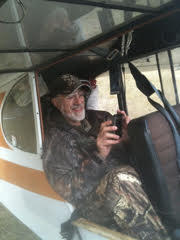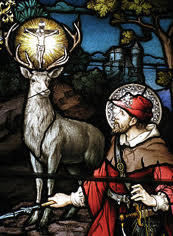Editor’s Note: Today, we continue our series on The Spirit of the Hunt
The most popular religion in the world is Christianity and the United States has the largest Christian population of any nation, nearly 240 million; about 80% of those in the US who say they have a religion are Christians. There are many denominations. All Protestant denominations account for 51.3%, while the Catholic Church by itself is 23.9%, which is the largest individual denomination. http://www.pewforum.org/2015/05/12/americas-changing-religious-landscape/
According to Genesis 1:28-30 God blessed man and said to them, “Rule over the fish in the sea and the birds in the sky and over every living creature that moves on the ground.” The Bible doesn’t say anything about opposing hunting for food or clothing, however, in Proverbs 12:27 the Bible does say that the man who hunts wild game and just kills it and does not take possession of it for eating is slothful. https://bibleresources.org/hunting/
Christians in general have no taboos against eating meat or hunting, however some choose a vegetarian diet, such as the Desert Fathers, Trappists, Benedictines, Cistercians and Carthusians. Most all of the Orthodox monks and some Christian esoteric groups, such as the Rosicrucian Fellowship, encourage vegetarianism. Seventh-day Adventists, the Christian Vegetarian Association and Christian anarchists also encourage vegetarianism.
The first Quaker, George Fox, condemned hunting and hawking. Some Quakers are Anti-Vivisectionists, however, they generally agree that men have a right to take the lives of animals, wild or tame, for their food. Quakers also can own guns and they may use them for hunting for food and to keep away predators like coyotes that consume livestock. http://quakerthink.blogspot.com/2008/09/im-quaker-i-own-gun.html
Mormons, say “And woe be unto man that sheddeth blood or that wasteth flesh and hath no need. (Doctrine & Covenants 49:21) God has created the fowls and the beasts for man’s convenience and comfort and for his consumption at proper times and under proper circumstances.” http://www.lightplanet.com/mormons/daily/hunting.htm
Jehovah's Witnesses say the Bible doesn’t oppose hunting, and there is no reason to judge others. However, it advises hunters to have their priorities in order — not to hunt when they should be attending church. https://www.deseretnews.com/article/786452/Churches-speak-out-on-hunting.html
 |
One expert on Christianity and hunting is Catholic priest, Father Theodore Vitali, Chairman of the Philosophy Department at St. Louis University, who is also an ethicist for the Boone and Crockett Club, and an avid hunter. https://www.slu.edu/colleges/AS/philos/site/people/faculty/Vitali/
Regarding hunting ethics, Father Vitali says: “For a hunter to be ethical, he needs to have a reason to kill—the two most prominent reasons being the right to obtain healthy food, and secondly, the conservation value for wildlife management. A third would be self-defense. A fourth would be management and conservation of the land, such as controlling numbers of deer in urban areas and lessening crop damage, or preventing zoonotic disease carried by ground squirrels.”
The manner of hunting is important. Father Vitali points to the definition of “Fair Chase” for Boone and Crockett. Fair Chase is the ethical, sportsmanlike, and lawful pursuit and taking of free-ranging wild game animals in a manner that does not give the hunter an improper or unfair advantage over the animal. https://www.boone-crockett.org/huntingEthics/ethics_fairchase.asp “Hunting this way,” Vitali said, “puts you on equal terms with the animal.”
In the first article of this series I quoted two Protestant priests who said that they felt closest to God when their first child was born and they when they killed their first deer. When asked if he ever had any special experiences while hunting, Father Vitali described one that occurred while hunting bears in Ontario.
In his own words: “In the spring of 1987, while hunting black bears in northern Ontario, I experienced an encounter that transformed my thinking and to a large extent my own Christian spirituality. About midway through the hunt I was in a blind along a deserted logging road deep in a typical northern Ontario forest. It was dark and foggy, bordering on mist and at times raining. It was about 8 pm. The bait I was hunting over was about 30 yards away from me. I sat in my blind, hunkered down under my rain gear and poncho, resting my rifle under the poncho.
It had been quiet for some time. Suddenly, I sensed something behind me. I knew from experience that a bear might circle a hunter and come to the bait from behind him. Therefore, I slipped the safety off of my rifle and very slowly turned around to see what was there. About seven or eight paces from me sauntered a large male wolf. My eyes caught his as I watched him pass by me, climb a small embankment, eye the bait, pause for what seemed a very long time, then turned and drifted off into the darkness of the forest. I felt no fear at all. I felt entranced by his presence. I didn’t want him to go away. I wanted to watch him and share with him this extraordinarily intimate moment. But, he was gone.”
“I can still remember with great vividness that there were no ‘fences’ here, nothing breaking up the continuity between him and me. I felt as though this was some kind of communion, some kind of sharing of life without barriers and without the imposition of human contraptions or artifices. I felt a direct connection to something much more than the ordinary in that moment. This was hunting in its purest form because both the wolf and I were engaged in the same thing: predation; he for the immediacy of his physical survival, I for my spiritual survival. We were both in the wilderness, both predators, both part of the continuum of life and death that constitutes the world we live in and the life we ultimately live.
 |
I also felt the intimacy of God incarnate in this wilderness experience. I felt God’s presence as both creator and redeemer. For whatever reason, I felt the full power of Christ’s Incarnation in the presence of the wolf. I was changed forever by and through this experience. I believe I discovered who and what I was: a creature among creatures blessed by God with life in the continuum of life and death. In the visitation of the wolf, I received the gift of knowing who and what I was and am and thus who and what I am before God. In my view, this is the ultimate value of hunting: the securing of that most intimate experience, the experience of belonging to the world as a fellow creature, that is, as God created it.”
Many Christian churches across North America recognize hunting. Some hold special services on the evening before opening day of deer season. Others hold dinners with wild game meats donated by hunters. http://www.pineandlakes.com/news/4352813-maple-hill-church-host-deer-hunters-dinner Some of the most dramatic religious honoring of hunters and hunting is associated with St. Hubert, the patron saint of hunting, who is honored every year in November 3.
More about St. Hubert in the next article in this series about what spiritual acts hunters may take to prepare for the hunt.
—James A Swan, Ph. D.